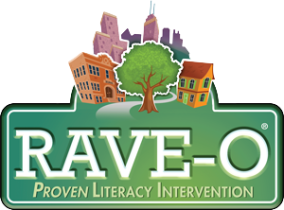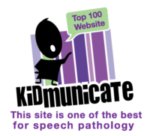As therapists, we often get sucked into the trap of using speech therapy jargon with parents and even other professionals. This leaves parents feeling even more confused and overwhelmed.
Helen and Elizabeth from Speech Blog UK have released an e-book that is the perfect solution for parents, therapists and other professionals to guide them with the speech therapy process. The processes in terms of receiving therapy services are targeted specifically for the United Kingdom, but this book provides gems of information that are relevant for many parents who may feel overwhelmed with the prospect of starting the therapeutic process.
The book addresses a number of important areas.
Chapter 1: Does my child have a problem?
There is a plethora of information on the web and often parents are overwhelmed with too much information. This chapter refers parents to reputable websites where they can check what kind of things are expected from their child. Once the decision for speech therapy has been made, the process of referral to the correct service is outlined. The chapter also provides suggestions for parents whilst they are waiting for services. Parents can also use independent or private therapists and the book guides parents on how to locate a therapist in their area. Suggested questions to ask the therapist are included, as often parents don’t know what to ask, or they may forget to ask for this information.
Chapter 2: Initial Assessment
This chapter outlines both formal and informal assessment procedures in detail. It describes the type of things that the therapist will be looking at. The information provided in this chapter will also allow parents to reflect more carefully about the skills that their child has. This may be invaluable in terms of providing the therapists with information.
Chapter 3: Feedback & Reports
Speech therapists often provide a lot of information for parents to ‘digest’ at once. This chapter outlines the type of information that may be provided as well as questions for parents to ask.
Chapter 4: What next?
Obtaining information about the type of the therapy, location and duration is important. In order to facilitate intervention, it is important that parents are part of the therapy process. This chapter provides guidelines for working with the therapist. It also gives suggestions on how to track progress in their child.
Chapter 5: What is communication?
Central to the book is understanding what communication is. Communication is made up of a variety of elements. This chapter identifies the different elements of communication. The different elements are reflected in a communication pyramid. This shows how each element builds on or effects other elements in order to facilitate communication.
Chapter 6: Additional support
This chapter is an overview of the UK educational system. There are some really practical checklists and suggestions to support parents if they require more specialised and/or long term educational support.
Chapter 7: People who might see your child
Sometimes, children who have speech and language difficulties also have difficulties in other areas. This chapter explains the role of all the different professionals in the team that parents may encounter.
Chapter 8: Glossary
Following an assessment parents are usually given a report. This is usually explained carefully to parents, but when they get home, it is suddenly a mass of meaningless jargon. The glossary in this chapter, explains all the terms that you may come across in a simple, easy manner. If you forget, you can just go back and clarify again.
In Summary:
Don’t be put off by the chapters in this book. It is not meant to be a ‘cover to cover’ read, but rather a handy reference that you can dip in and out of.
Throughout the book, Helen and Elizabeth provide real examples from their clinical practice in order to explain concepts and guide parents in their choices.
Whilst some of the processes are unique to the UK, I think the guidelines for parents, are invaluable. If parents are invested in the therapy process, then the outcome is always so much better! This book guides parents on how to engage and invest in their child’s speech therapy process and facilitate more effective intervention.
This book is not only for parents. I would highly recommend it to teachers and other professionals who need information about speech therapy.
The book is currently on sale for £12! Click here to purchase.
lIf you are outside of the UK, then please mail Helen and Elizabeth on sp**********@gm***.com
Thank you to Speech Blog UK for providing me with a copy to this book to review. All opinions are my own.










Recent Comments